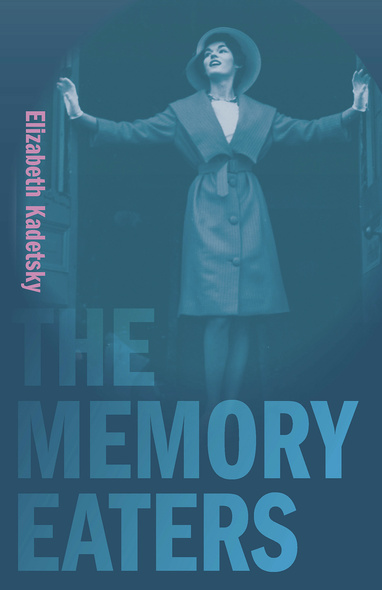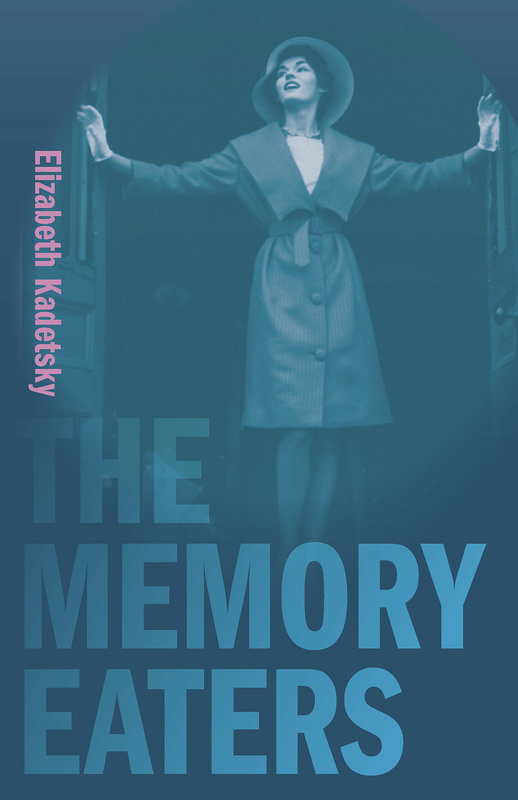The Memory Eaters
University of Massachusetts Press
On autopsy, the brain of an Alzheimer's patient can weigh as little as 30 percent of a healthy brain. The tissue grows porous. It is a sieve through which the past slips.
As her mother loses her grasp on their shared history, Elizabeth Kadetsky sifts through boxes of the snapshots, newspaper clippings, pamphlets, and notebooks that remain, hoping to uncover the memories that her mother is actively losing as her dementia progresses. These remnants offer the false yet beguiling suggestion that the past is easy to reconstruct—easy to hold.
At turns lyrical, poignant, and alluring, The Memory Eaters tells the story of a family's cyclical and intergenerational incidents of trauma, secret-keeping, and forgetting in the context of 1970s and 1980s New York City. Moving from her parents' divorce to her mother's career as a Seventh Avenue fashion model and from her sister's addiction and homelessness to her own experiences with therapy for post-traumatic stress disorder, Kadetsky takes readers on a spiraling trip through memory, consciousness fractured by addiction and dementia, and a compulsion for the past salved by nostalgia.
As her mother loses her grasp on their shared history, Elizabeth Kadetsky sifts through boxes of the snapshots, newspaper clippings, pamphlets, and notebooks that remain, hoping to uncover the memories that her mother is actively losing as her dementia progresses. These remnants offer the false yet beguiling suggestion that the past is easy to reconstruct—easy to hold.
At turns lyrical, poignant, and alluring, The Memory Eaters tells the story of a family's cyclical and intergenerational incidents of trauma, secret-keeping, and forgetting in the context of 1970s and 1980s New York City. Moving from her parents' divorce to her mother's career as a Seventh Avenue fashion model and from her sister's addiction and homelessness to her own experiences with therapy for post-traumatic stress disorder, Kadetsky takes readers on a spiraling trip through memory, consciousness fractured by addiction and dementia, and a compulsion for the past salved by nostalgia.
Kadetsky's nuanced essays explore the complicated contradictions inherent to memory, how memory holds us captive to our familial wounds, while at the same time helping us preserve the stories, and presences, of those we love.'—Paisley Rekdal, author of Nightingale
'In The Memory Eaters, Elizabeth Kadetsky carries us down 'the river of forgetfulness,' a journey that proves both brilliant and beautiful. The author's precise eye for detail, the lushness of her prose, her relentless and unflinching determination to comprehend a family's incalculable mysteries, shape a vividly unforgettable memoir of longing and discovery. This one will haunt me for some time.'—Dinty W. Moore, author of Between Panic and Desire
'The Memory Eaters functions as love letters to single mothers, to New York City of the '70s and '80s, to the fashion industry, to graffiti artists, and to Kadetsky's own mother, of course. And, like all the best love letters, it's simultaneously wistful and romantic and cutting and sublime.'—Jeff Parker, author of Where Bears Roam the Streets
'She illuminates her battles with her mother's Alzheimer's, her sister's addiction, and family secrets with radiant insights and gorgeous writing. Ultimately, Kadetsky answers the question inherent in this memoir: Can we remake the past using the wisdom of the present? The Memory Eaters exquisitely answers that question in the affirmative.'—Betsy Carter, author of We Were Strangers Once
'At the heart of Elizabeth Kadetsky's exquisitely written memoir, The Memory Eaters, is a profound narrative about longing—longing for the past, for family, for home, for lost innocence, and for memory itself. Kadetsky deftly weaves her search for family secrets with stories about her own past trauma, her sister's addiction and homelessness, and her mother who was tragically struck down by early Alzheimer's. This is a powerful book, beautifully told.'—Mira Bartok, author of The Wonderling
'True to the mystical, fashion-model mother who inspired this dazzling memoir, The Memory Eaters honors the pain of losing a beloved family member to Alzheimer's while also placing the mystifying, if not liberating, self-revision the illness inspires in the larger context of myth-making that all families share.'—Elyssa East, author of Dogtown: Death and Enchantment in a New England Ghost Town
ELIZABETH KADETSKY is author of the memoir First There Is a Mountain, the short story collection The Poison that Purifies You, and the novella On the Island at the Center of the Center of the World. A professor of creative writing at Penn State and nonfiction editor at the New England Review, she is the recipient of fellowships from the Fulbright Program, MacDowell Colony, and Vermont Studio Center.






